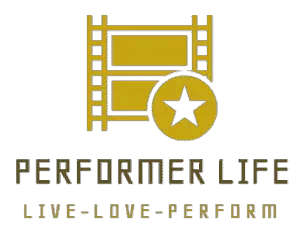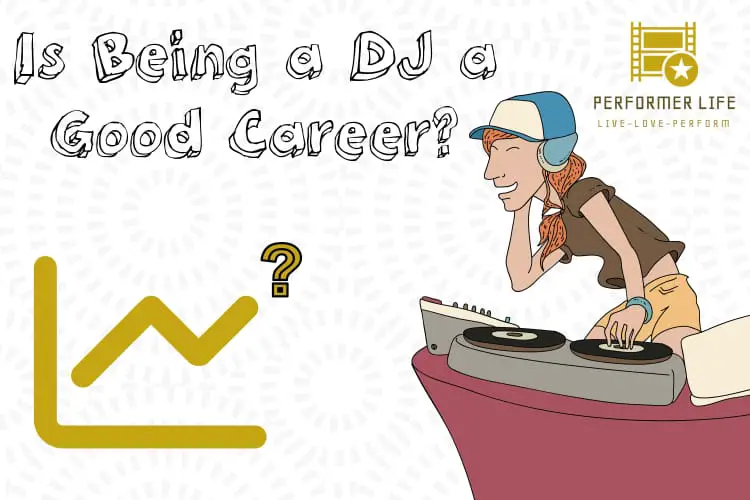Many musicians and music fans have probably thought about a career in the industry, and there are plenty of options. If you love music and being in front of a crowd, you may want to become a DJ. But before you do, you should consider if it’s a good career for you.
DJing is a good career for music lovers who also enjoy working with technology. A DJ needs a lot of special equipment, such as turntables. And it involves much more than setting up a playlist.
While it’s not necessary to have a music degree, some knowledge of music and music theory can help.
Whether you’ve wanted to be a DJ for years or just came across the career, you should know what it takes. You don’t have to be a professional musician to make it as a DJ, but you do need some skills.
Consider what skills and equipment you need to become a good DJ.
Table of Contents
Equipment You’ll Need
Every successful DJ has a variety of tools and equipment to use while mixing. Whether you’re getting started as a DJ or want to turn your hobby into a career, you have to get the right equipment.
Consider what hardware and software you’ll need to make music.
- At a minimum, you need a good laptop with excellent performance and speed. It should also have enough space to store all of your music files.
- You also need a good quality music software program. Some programs, like GarageBand, are free, while others cost close to $1,000.
- A DJ controller can come in handy if you want to make more detailed changes to loops and effects. You can get one that hooks directly to your computer with a USB cable.
- If you want to work with vinyl records, you should also get a turntable. You can use two of them and a mixer to get creative with the music you include in your setlist.
As you grow your DJ career, you can invest in other tools, like special DJ headphones, cables, and mixers. You want to make sure that you can take your gear wherever so that you can start gigging as much as you can.
Luckily, you don’t have to spend a ton of money initially, but the costs of equipment will add up throughout your career.
Skills You’ll Need
To become a DJ, you can’t just have the best DJ equipment. You also need to be able to use that equipment to mix and edit a playlist. Every good DJ needs to love different songs and artists.
You don’t have to enjoy every genre, but you should know about a few prominent artists. Then, you can select the right songs for a DJ setlist so that the songs go together.
It’s also important to know what songs and artists are popular so that you can choose songs the audience will like.
You also need to always be learning about music software and DJ equipment. Keep up with regular updates to your favorite programs, and learn to use a new DJ controller when you can.
The more you know about DJ software and hardware, the easier it will be for you to do your job.
It will also help you diversify yourself as a DJ, so you can land more gigs. Sometimes, you won’t have a choice on what hardware or software you use.
If you only know one operating system and program, you will limit yourself and the gigs that you can get.
Music Skills You’ll Need
As a DJ, you need to know how to perform in front of a crowd, and you need to use DJ software. However, you also need to know how music works and why some songs work better together than others.
You don’t have to have a degree in music to become a DJ, but you need some music skills.
- To mix two songs, you should make sure they have the same or similar beat patterns. If there’s a slight difference, you can edit that in your software, but bigger differences can be more difficult.
- You should understand basic music theory concepts, like time signatures, rhythm, and tempo.
- Consider taking some private lessons or a class in music theory. Understanding chords and keys can also help you choose songs that flow together more naturally.
You may not be writing or recording music, but you need to know the basics so that you can choose the right songs.
Blending two wildly different tracks together isn’t the end of the world, but it won’t make much sense to the audience. You can also use your music skills to further develop your DJ career.
Getting Started
Once you have some basic DJing equipment and have started getting the necessary skills, you can start your DJ career. It won’t be easy to start DJing, but it can be very rewarding.
Getting started is probably the hardest part, especially because you won’t make much money for a while. Some clubs and venues won’t pay new DJs anything, and other times, your payment might be a free drink.
You can work your way up playing for $50 to $100 per night, but it can take a while.
It’s also not uncommon for DJs to travel a lot for work. You may play a set in New York one night and LA the next. And you may have to pay for your travel expenses, especially as a newer DJ.
But getting out and performing in different places can help you grow your career.
As you start, you can spend your free time working on your music and growing a following online.
Use your social media accounts to showcase what you can do by sharing recordings of recent sets or DJing live online. Then, you can start building a reputation for yourself.
Growing Your Career
Once you start getting gigs and making money, you can work on growing your career.
You can keep growing your online following and sharing upcoming shows with your fans. And if you want some extra help with that, you can get a manager.
A manager can help you book shows, and they can manage your digital presence. But do your research and make sure the manager you choose can get you good gigs that pay well.
You should also avoid managers that request a higher commission as that will eat into your income.
When you aren’t playing shows, you should also get out and watch other DJs. You can learn a lot from what other people do, especially if they happen to make a mistake.
After a show, you can introduce yourself to the DJ who performed, and you can talk about DJing.
Now, if you want to catapult your income and career, you should learn how to produce your own music. When you do that, you will own the rights to that music, so you can make money whenever someone else plays it.
You can license your music through an organization that will take care of collecting fees for you.
Who Should Be a DJ?
If you’re considering becoming a DJ, you have a lot to think about. You have to purchase good DJ equipment, and you’ll need to maintain it and replace things when they stop working.
Some DJs will also have to work a second job to pay the bills at first.
If you love music and performing and you’re good with technology, you would make a great DJ. But if you don’t like learning or networking with people, it will be hard to advance in this career.
A good DJ should also be willing to be out late since most gigs go well past midnight. If you’re more of a morning bird, you might have a hard time adjusting, but you can switch your sleep schedule.
Conclusion
DJing is a great career for many aspiring musicians and producers. You can work in a variety of places and meet tons of people while playing your favorite songs.
But you have to consider the expenses and lifestyle before you pursue this type of job.



![HERE’S What Happened to the Soul Singer Al Green [2023 Update]](https://performerlife.com/wp-content/uploads/2023/04/what-happened-to-al-green-211x150.jpg)
